
Treat anal eczema sustainably
Updated on 02. November 2023
One of the most common skin diseases in the anal area is eczema. It is often quickly concluded that hygiene is inadequate. Those affected are ashamed and therefore do not dare to go to the doctor. But anal eczema often has other causes. With prompt treatment, the disease can be cured quickly.
Anal eczema Brief overview:
- Causes: Diverse
- Symptoms: Inflammation of the outside of the anal area
- Prevention: Avoidance of moisture in the anal area
- Treatment: Sanitation, cleaning, creams
Anal eczema symptoms
Anal eczema, also called perianal eczema, is an inflammation of the skin around the outside of the anal area. The disease is mainly noticeable through severe [itching](). This can also occur at night and affects the quality of life.
What are the symptoms of anal eczema?
Inflamed anal skin leads to several leading symptoms:
- severe itching
- pain and a sore feeling in the anal region
- burning sensation during defecation and movement
- Traces of oozing on the underwear
- Skin changes such as redness, blisters or pustules
Can anal eczema bleed?
At first, the skin in the anal area is only red and irritated. If the patient [itches]() at the site, slight traces of blood may appear. This also occurs when mechanical stimuli such as rubbing clothes occur in untreated eczema. More severe and especially dark red traces of blood must be clarified with a doctor.
Causes anal eczema
The causes of anal eczema are manifold. For easier assessment, they are divided into four different forms according to their origin.
- Contact allergic anal [eczema](): This [eczema]() is caused by contact with allergenic substances. The cause can be ingredients in hygiene and care products. This form of anal eczema is the most common (40%).
- Irritative-toxic anal eczema: In this variant, intestinal or anal problems trigger the eczema. There is often an underlying disease causing the problems.
- Atopic anal eczema: This variant is genetically determined and is a form of psoriasis. Accordingly, the disease often progresses in episodes.
- Infectious anal eczema: The skin is inflamed by an infection with fungi, viruses or bacteria. This variant occurs very rarely.
Which substances can trigger anal eczema on contact?
There are a variety of substances that can trigger a [contact allergy](). Fragrances, perfume oils and preservatives are substances to which people can be allergic. They are contained in moist toilet paper, shower gel, shampoo, intimate sprays and lubricants. But anal creams and haemorrhoid ointments can also promote allergies due to lidocaine and other active ingredients.
What triggers irritant-toxic anal eczema?
In this form of eczema, there is an accumulation of fluid. This can happen due to oozing [haemorrhoids](), a [fistula](), faecal incontinence, mariscae or diarrhoea. Sweating due to inappropriate and too tight clothing can also lead to secretion in the anal area. The fluids can contain bacteria, but also aggressive substances such as acids, alkalis or ammonia. If the aggressive fluid accumulates in the anal area, eczema can form. Cycling, long hikes or, in the worst case, simply hard toilet paper then intensify the effect of the toxic substances.
Treat anal eczema
The first goal in treatment is to restore the quality of life. Therefore, [itching\]\(/pruritus/) and burning are treated first. In parallel, the primary cause of the eczema is treated.
Which specialist is right for anal eczema?
In general, the general practitioner can be consulted for acute anal eczema. If it is toxic or chronic anal eczema, the proctologist is the right contact person.
How is anal eczema treated?
Acute anal eczema should be treated as soon as possible. The therapy is oriented towards the cause.
- Turn off irritants: To find the possible source of the eczema, all locally applied products should first be omitted and only water should be used. Thorough dabbing with a towel is necessary. Once the eczema has completely healed, light cleansing products may be used again. Even after the symptoms have subsided, care must be taken to use mild hygiene products and to cleanse mainly with water.
- Creams and ointments: To soothe and heal the irritated skin, zinc ointments are applied locally. It forms a barrier on the skin against irritating substances in the stool. Therefore, zinc ointment can also protect irritated skin from being aggravated by bowel movements. Creams containing local anaesthetics such as lidocaine are used as acute therapy for [itching]() and pain.
- Remediation of diseases: As far as possible, pre-existing conditions that are toxic causes of anal eczema should be treated primarily. This includes treatment of weeping haemorrhoids, [anal]() fissures or fistulas. This reduces the accumulation of toxic secretions. If therapy is not possible, appropriate countermeasures are important. For example, an anal tampon can prevent the formation of anal eczema in cases of faecal incontinence.
- Adjust diet: If food intolerance is suspected, the triggers for intestinal discomfort and diarrhoea should be avoided. In addition, foods and additives that cause burning stools should be avoided. These include especially hot spices such as hot peppers and chilli.
- Cleansing: External irritants, for example rough toilet paper, must be avoided. It is best to shower the anal area after defecation with a bidet or a butt shower. Afterwards, the skin in this area is thoroughly patted dry with a clean towel.
- Ointments and creams for healing can also cause eczema. Particularly with sensitive skin that is prone to [neurodermatitis]() or psoriasis, close attention must be paid to tolerance. If the symptoms worsen or do not improve within four days, the product should be discontinued.
How do home remedies help with anal eczema?
Home remedies can support the healing of anal eczema and have a caring effect. Tannins have an astringent effect, which closes off the surface of the skin. This allows the skin to dry and makes it less sensitive to external irritants. Bacteria and fungi cannot spread on the inflamed skin. Tannins are found in [witch hazel](), black tea and oak bark. These home remedies can be used as compresses or sitz baths for anal eczema. In addition, creams and ointments made from various herbal products can be used. Chamomile, calendula and witch hazel promote wound healing. However, home remedies are not suitable for long-term therapy and contain a certain allergic potential. Witch hazel is particularly suitable for people who are prone to allergies. So far, no allergic reactions to [witch]() hazel are known.
How can I still support the healing?
Underwear should be made of skin-friendly fabrics that absorb moisture well. These include natural materials such as cotton and silk. For faecal incontinence, pads that do not contain plastics should be used. Damp underwear must be changed as soon as possible. Air dries the wound, making it harder for germs to survive. Whenever possible, underwear and trousers should be avoided at home. If you do not want to stay "bottomless", women can simply choose a wide, opaque skirt. For men, a pair of wide cotton shorts without pants is suitable.
How long does anal eczema take to heal?
With the right measures, anal eczema heals quickly and usually within four days. However, if the eczema is not treated, it can become chronic and take longer to heal.
How is anal eczema treated in babies?
Babies and children can also suffer from anal eczema. Usually the causes are skin diseases and allergies. Perfumed lotions, cleansers or wet wipes should not be used for children. Younger children in particular are often not yet able to clean their bottoms properly. Depending on their age, adults should still help and guide.
What causes chronic anal eczema?
The treatment of anal eczema must be carried out until complete healing. In addition, the triggering factors must be eliminated in the long term. If the eczema has developed due to an allergy to perfume oils in wet wipes, it will reappear with renewed use, despite clearing up. If the change in cause is not stopped after healing, the anal eczema can become chronic and cause constant problems.
Prevent anal eczema
Anal eczema can be prevented with a thorough, yet gentle cleaning of the perianal area. Existing diseases of the anal area should not be postponed, but treated before secondary problems develop. Loose cotton clothing and pads without plastic content are an important basis for preventing moisture build-up in the anal area.
How is anal eczema diagnosed?
A doctor can often diagnose anal eczema through a physical examination. Sometimes it may be necessary to perform skin tests to identify allergic reactions or a skin biopsy to rule out other skin conditions.
Is anal eczema contagious?
No, anal eczema is generally not contagious unless it is caused by a contagious infection such as herpes or a fungal infection.

Hameli's vision
Go to Vision
Vaginal Fungus - Symptoms, Causes & Treatment
Go to Vaginal mycosis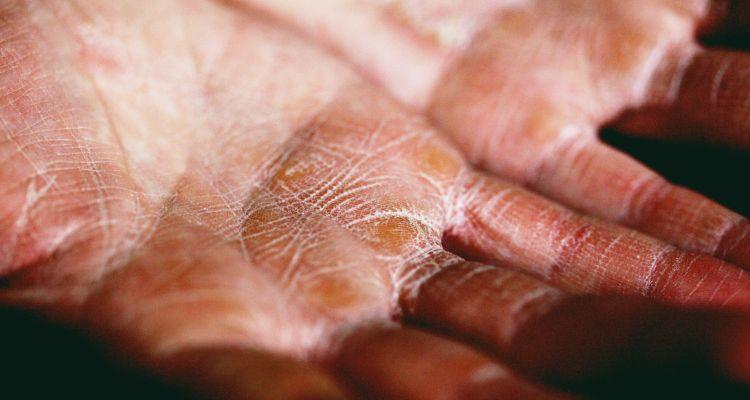
Dry skin - What helps against it?
Go to Dry skin
Witch hazel - varieties, cutting, effect, & products
Go to Witch Hazel
Recognise and treat coccygeal fistula
Go to Coccygeal fistula
Anal fistula - symptoms, causes & treatment
Go to Anal fistula
Labial tear - Symptoms, Causes & Treatment
Go to Labial tear
Intertrigo - Cause, symptoms and treatment of the skin wolf
Go to Intertrigo
Anal abscess: symptoms, recognition, causes & treatment
Go to Anal abscess
Chickenpox - symptoms, vaccination, infection and treatment | Hamelis
Go to Chickenpox
Seborrhoeic Eczema - Symptoms, Causes & Treatment
Go to Seborrhoeic eczema
Anal fissure - Symptoms. Causes & home remedies
Go to Anal fissure
Vaginal dryness - symptoms, causes & treatment
Go to Vaginal dryness
Hives - Cause, symptoms and treatment
Go to Hives
Hamelis experts
Go to Experts
Rose lichen - symptoms, causes and treatment
Go to Rose lichen
Scars - treatment and removal
Go to Scar
Ringworm: Symptoms, Causes & Treatment
Go to Ringworm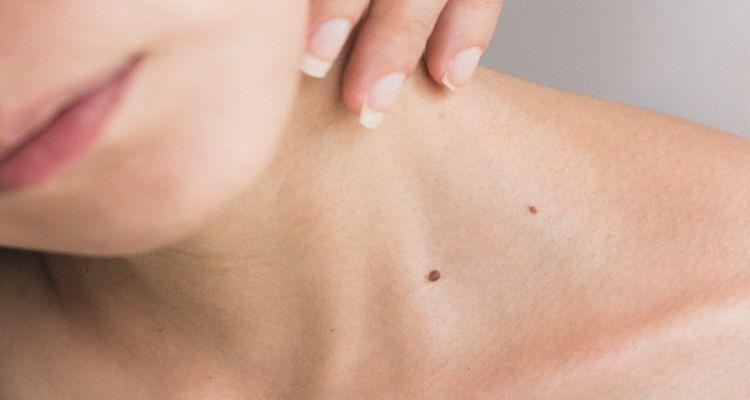
Scabies - symptoms, cause and treatment
Go to Scabies
Eczema - symptoms, causes and treatment
Go to Eczema
Contact allergy - symptoms and treatment
Go to Contact allergy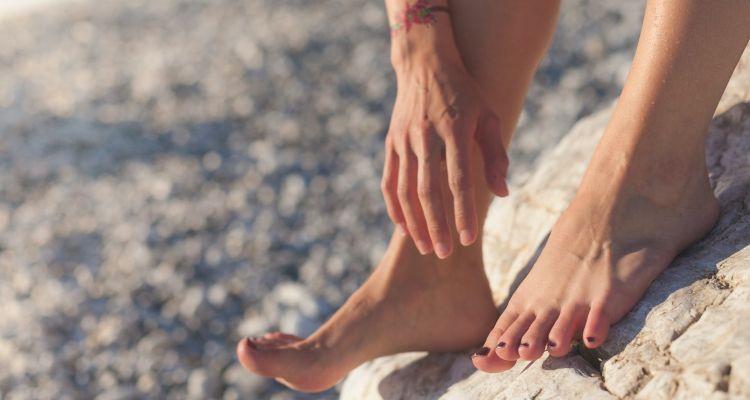
Treat stubborn nail fungus
Go to Nail fungus
Crabs - Intimate area, symptoms & treatment
Go to Crabs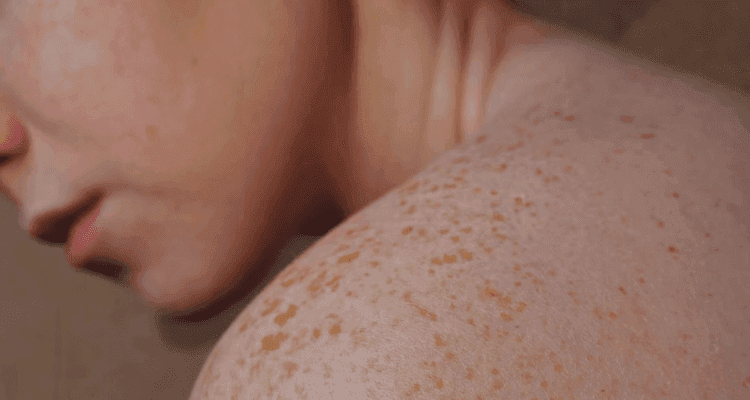
Pruritus - Causes, symptoms and treatment
Go to Pruritus
Rosacea on the face - symptoms, causes and treatment
Go to Rosacea
Perioral dermatitis - symptoms, treatment & home remedies
Go to Perioral dermatitis
Skin fungus - cause, symptoms and treatment
Go to Skin fungus
Perineal tear - origin, degrees & causes
Go to Perineal laceration
Anal prolapse: symptoms, causes, treatment
Go to Anal prolapse
Skin rash - causes and treatment
Go to Skin rash
Genital herpes - woman, man & symptoms
Go to Genital herpes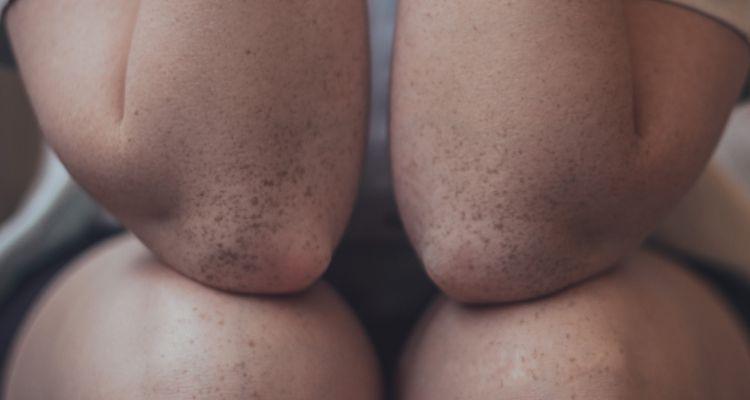
Atopic dermatitis in children, adults and pets
Go to Atopic dermatitis
Angioedema - symptoms, causes and therapy
Go to Angioedema
Nappy dermatitis - cause and treatment of sore baby bottom
Go to Diaper rash
Sunburn - symptoms, duration & what helps?
Go to Sunburn
